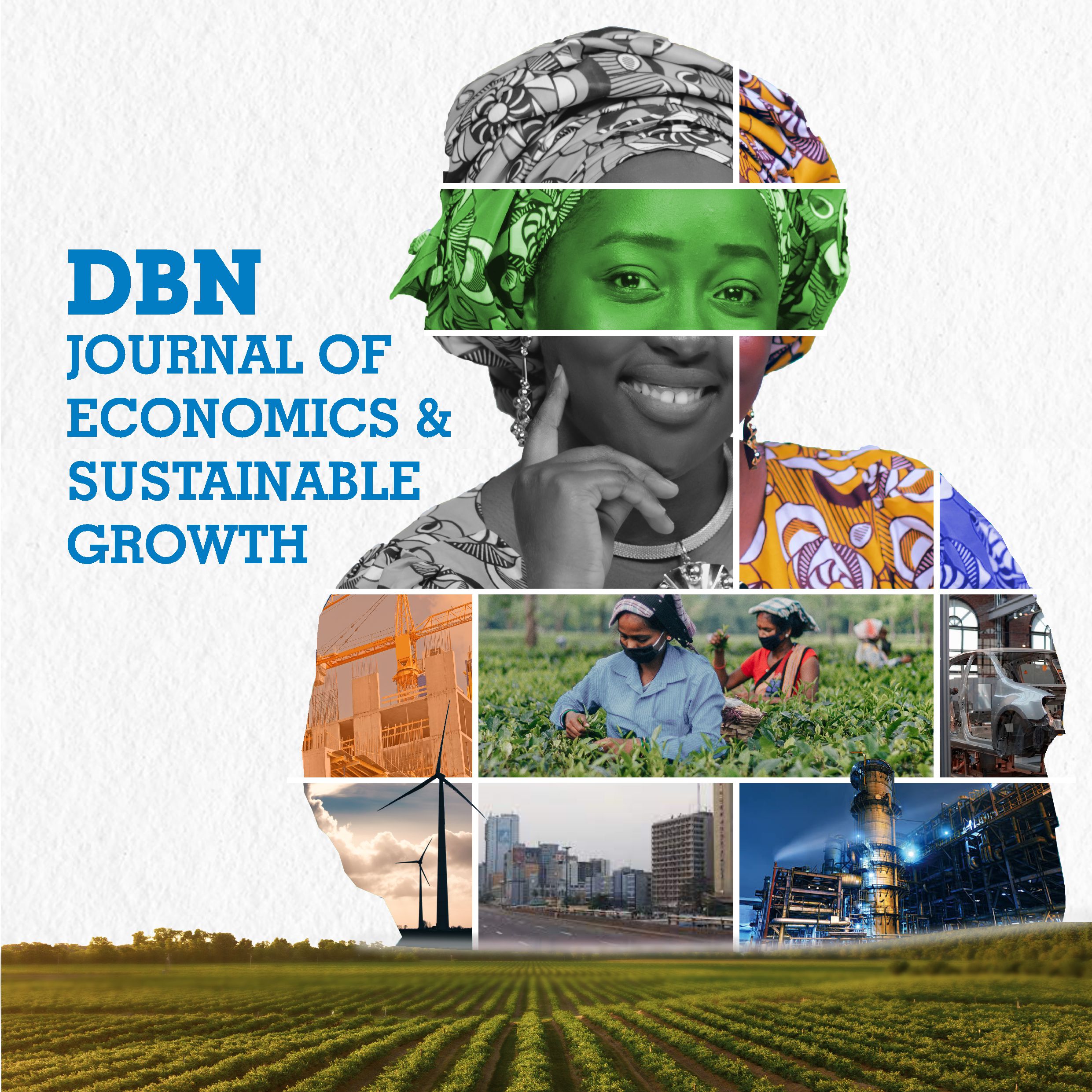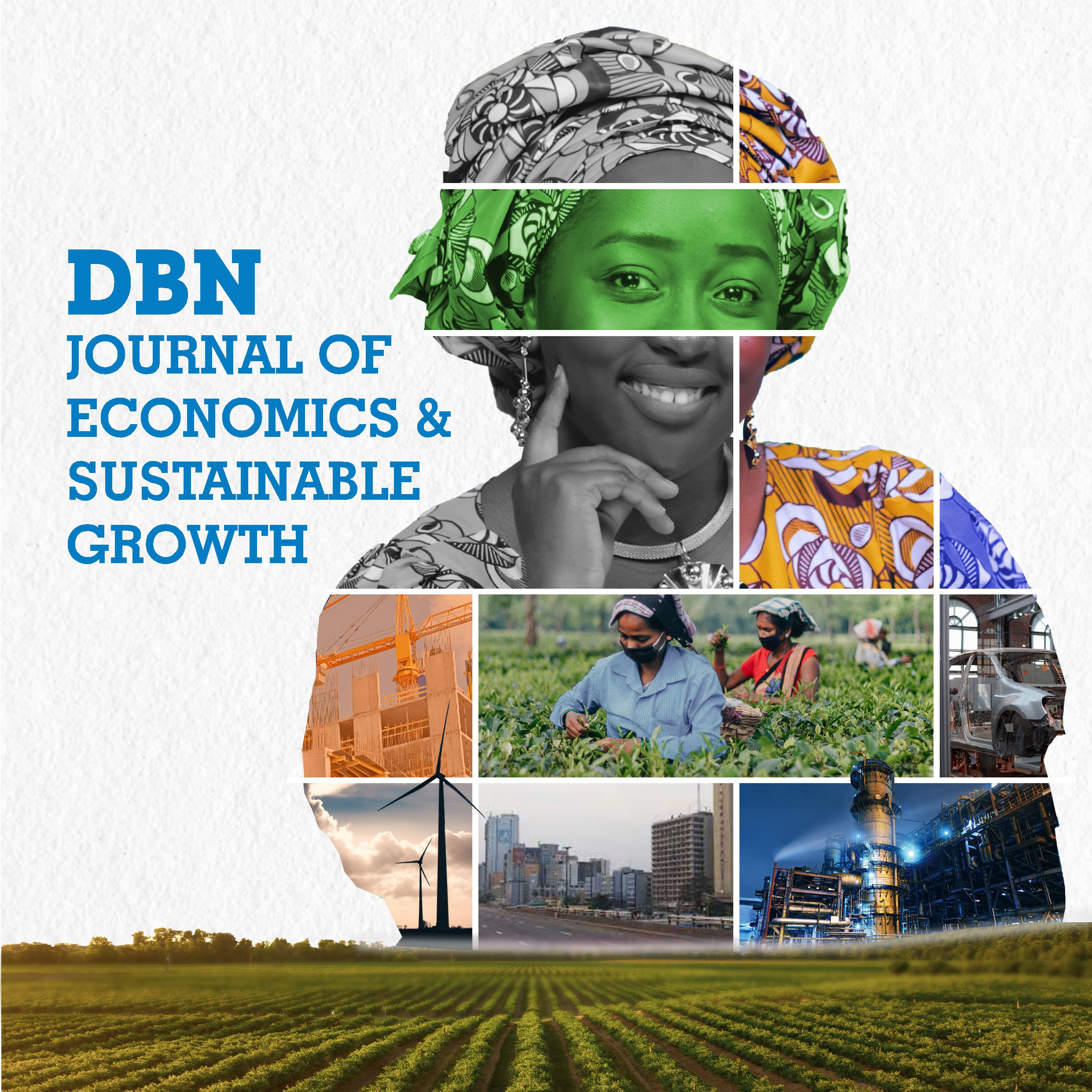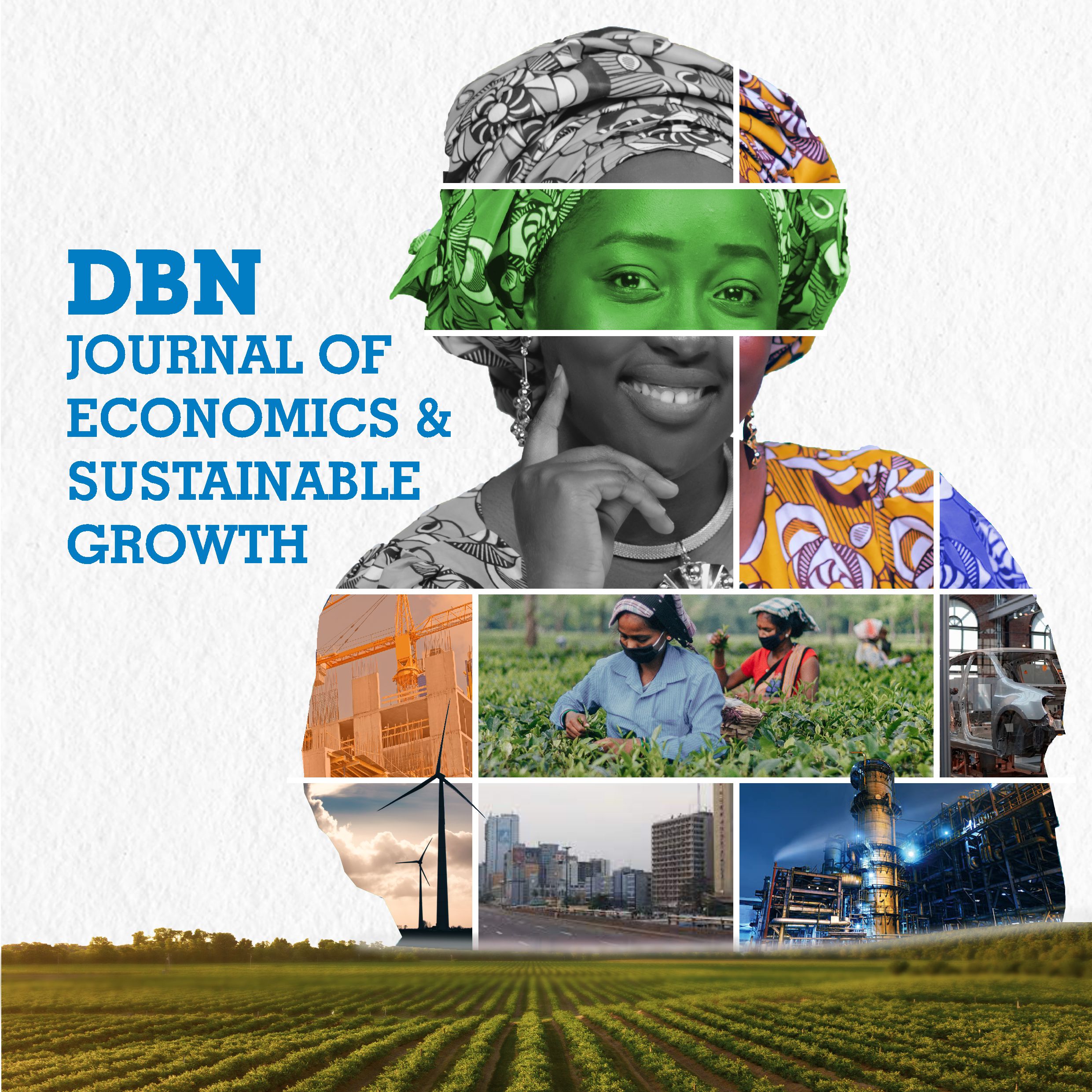
Publication Information
Published by: Admin
Published: 10 months ago
View: 318
Pages: 20
ISBN:
Abstract
This study deviated from prior studies by uncovering the moderating role of financial development on sectoral growth (agricultural, manufacturing and service sectors) – poverty reduction nexus in Nigeria from 1981 – 2021 within the framework of Dynamic ordinary least square (DOLS) estimator. Also, FMOLS is also adopted as a robustness check. The study’s findings indicate that all the concerned sectors damped down poverty in Nigeria, except manufacturing sector. The interaction of financial development and agricultural, manufacturing and service sectors significantly alleviate poverty in Nigeria. Similarly, the robustness analyses from FMOLS are in tandem with DOLS estimates. The study concludes that agricultural and service sectors as well as their interactions with financial development are critical to reduce poverty in Nigeria. Thus, Nigerian monetary authority should develop financial sector via financial access, depth and efficiency and make it a policy for commercial banks to channelize certain percentage of financial resources for sectoral expansion. Such funds can be made available in the form of interest free loans or with a little interest and modalities should be set up between National Farmers’ Association of Nigeria, Manufacturers Association of Nigeria, Small and Medium Enterprises of Nigeria (SMEDAN), other service sectors and commercial banks on the effective usage of such funds.
Oluseyi Omosuyi
Related Publications

VOLUME 7 ISSUE 1 2025
Blended effect of economic openness and governance on FDI inflows in Nigeria

VOLUME 7 ISSUE 1 2025
Interplay between Sectoral Growth and Financial Development in the Poverty Reduction Process in Nigeria

VOLUME 7 ISSUE 1 2025
Analysing the Monetary and Fiscal Policies Effect on Nigeria's Economic Growth
